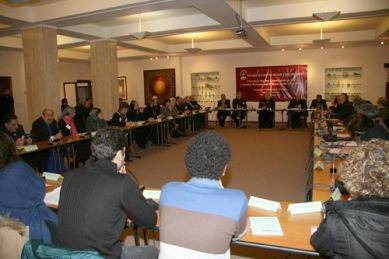Christians and Muslims Commit to Cowork for Middle Eastern Peace

A group of Christian and Muslim leaders in the Middle East have given their commitment to working for peace and harmony in the region.
The group met during a five day consultation in Antelias, Lebanon hosted by the Armenian Catholicosate of Cilicia and the World Council of Churches (WCC) to discuss the Christian presence and witness in the Arab world.
WCC General Secretary the Rev. Olav Fykse Tveit said that he appreciated the participation of a range of Muslims in the consultation, who he said emphasized their commitment to strengthen the Christian presence in the Middle East.
"We will certainly want to make clear to our wider constituency, the WCC's extensive experience over many years of how Christians and Muslims continue to work together constructively for the common good," Tveit said.
Tveit also acknowledged the hardships that both groups have gone through due to the occupation and war in Iraq and the occupation of the Palestinian territories.
"We know that the changes in the Arab world over the last year – and changes still to come – have also left many Christians, along with many Muslims, feeling uncertain and even afraid for their future," he said.
Furthermore, Tveit noted the importance of the Christian communities in the region, many of which date back to the apostolic times.
"Without this Christian presence, the conviviality among peoples from different faiths, cultures, and civilisations, which is a sign of God's love for all humanity, will be endangered," said Tveit.
The consultation, which ran from Jan. 24-28, brought together youth, scholars and leaders for a "frank and dynamic discussion," according to WCC news.
Lebanon has one of the Middle East's largest Christian populations, percentage wise, comprising about 30 percent of the 4.3 million population. The country's constitution dictates that the president must always be Christian, the prime minister Sunni Muslim, and the parliamentary speaker Shia Muslim.